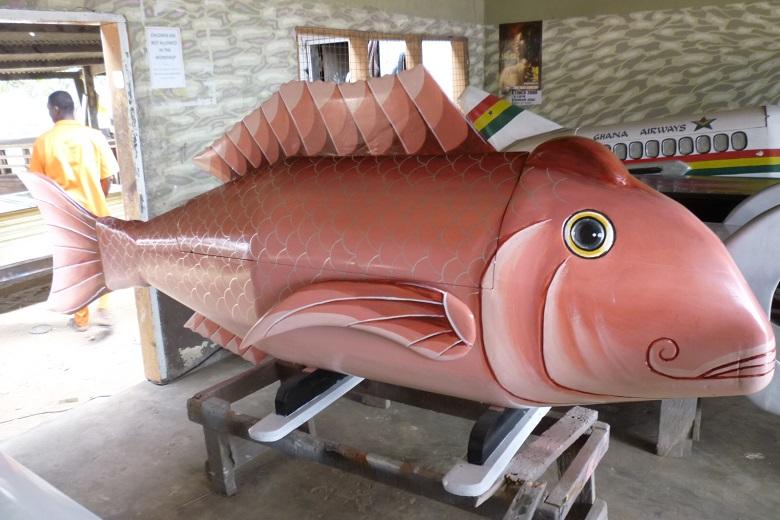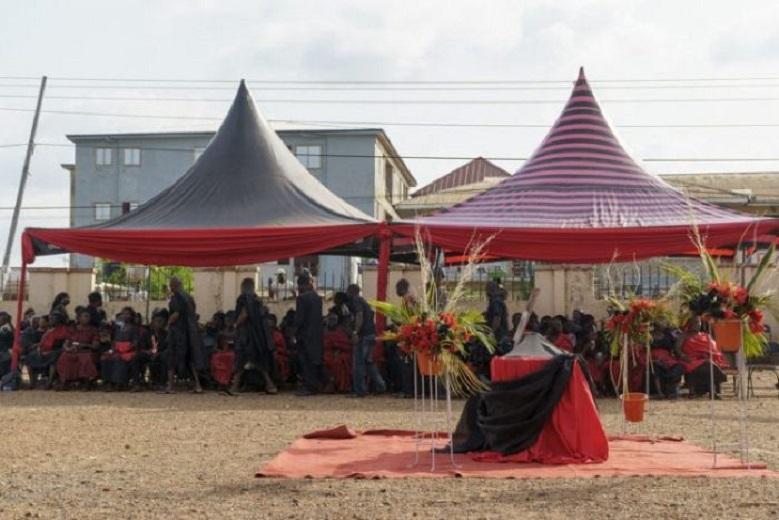Why funerals in Africa can drag on for months or even years

In most countries, burials take place a few days after the death of a person. Still, in some regions of Africa, preparing a body for burial can take from several months to… several years. For example, in Ghana, the bodies of the deceased are usually kept in the morgue for a long time.
Such a long burial process is directly related to the institution’s perception of the family in African countries. Throughout a person’s life, his children, spouse and parents are considered his closest relatives, family. But as soon as a person dies, his body begins to belong to the family he was born with.
In other words, it already belongs to all the closest relatives of the parents. It so happens that during life, these relatives did not have close communication. Still, it is they who determine how, where and when the burial will take place. The next step is the next of kin must agree to these terms. And at this stage, the discussion is often delayed.

Modern politicians and public figures are trying to change the state of affairs, calling for an end to the practice of long-term storage of bodies in the morgue. Such calls have no particular effect; for example, information was recently made public that the body of a man has been frozen in one of the morgues in Ghana for six years, whose relatives still cannot reach mutual understanding. Such cases are typical for Ghana, so this information did not even come as a surprise. In a southern part of Nigeria, a dead have been in the mortuary for 13 years and others.

There may be several reasons why the funeral process is delayed. Firstly, often several families decide among themselves who nevertheless buries the body. Secondly, disputes are being held about the shape of the coffin (the Ghanaians are famous for their original approach to solving this issue). Thirdly, the wait is often delayed because all relatives from different parts of the world should come together. The problem can be solved if, for example, only the closest relatives become responsible for the burial, then everything will go faster and easier.
It is now arranged so that children finance the funeral of the deceased. Still, at the same time, they cannot participate in the discussion when this happens. A husband or wife also cannot take on all the chores, even if the couple has been married for half a century. Once a person has died, they are taken care of by the family in which they were born.

The preparations for burial are being delayed for several reasons. For example, Ghanaians can easily start repairing or rebuilding the house in which the deceased lived. It takes a lot of time to draw up an obituary, invite guests of honour because you need to agree on a date on which everyone will be free. For example, a BBC journalist recently spoke about the funeral of a local politician and entrepreneur. To tell about his 84 years of life, they published an entire brochure of 226 pages, and it took some time.
There is one more conviction: if the body was immediately buried, it means that it was not shown due respect, which is why they prefer to bury it at least a few weeks later. Naturally, while Ghana did not have refrigeration equipment for storing bodies, burials were quick. But technology has played a cruel joke with the locals.

Imagine the scale of an African funeral. It is enough to recall the recent case when a man used a brand new BMW instead of a coffin to bury his father with due respect.




